Handbook for Liturgical Studies (5 vols.)
Digital Verbum Edition
Overview
Learn the methodology, historical setting, theological and spiritual doctrines, and the pastoral concerns of the liturgy. The Handbook for Liturgical Studies provides a course of liturgical studies in five volumes. It leads readers not only to a scientific understanding of the liturgy but also to an active and spiritually fruitful participation in the ecclesial celebration of Christ’s mystery desired by the Second Vatican Council.
The Handbook examines the subjects in the liturgical ordo, history, and tradition as components of the theology of liturgy. It pays significant attention to the role played by the human sciences in the liturgy—psycho-sociology, anthropology, linguistics, and the arts. Contributors treat pastoral and spiritual considerations in light of liturgical principles and suggest general models based on the meaning and purpose of the liturgy. This comprehensive vision of Christian worship integrates materials from the East and non-Roman West with the Roman.
More than 40 authors from Asia, Africa, Latin America, North America, and Europe have contributed to the Handbook. Many are professors of the Pontifical Liturgical Institute in Rome. Each author, while drawing material from liturgical tradition and from ancient, medieval, and modern sources, also writes from a particular research and personal interest in a subject. Although diverse in style, together the authors express a spirit of fidelity to the Church, its doctrine and tradition, and its mission. The result is a cohesive view of the meaning, purpose, and celebration of Christian worship.
In the Verbum editions, these volumes are enhanced by amazing functionality. Important terms link to dictionaries, encyclopedias, and a wealth of other resources in your digital library. Perform powerful searches to find exactly what you’re looking for. Take the discussion with you using tablet and mobile apps. Your software brings the most efficient and comprehensive research tools together in one place, so you get the most out of your study.
Interested in Liturgy? Take a look at the Paulist Press Liturgy and Sacraments Bundle (21 vols.).
Key Features
- Provides a reference for liturgical ministry
- Presents the works of more than 40 authors from around the globe
- Addresses the methodology; historical setting; theological and spiritual doctrines; and pastoral concerns of the liturgy
Product Details
- Title: Handbook for Liturgical Studies
- Editor: Anscar J. Chupungco
- Series: Handbook for Liturgical Studies
- Publisher: Liturgical Press
- Volumes: 5
- Pages: 2,096
- Christian Group: Catholic
- Resource Type: Handbooks
- Topic: Liturgical Theology
Individual Titles
- Handbook for Liturgical Studies, vol. 1: Introduction to the Liturgy
- Handbook for Liturgical Studies, vol. 2: Fundamental Liturgy
- Handbook for Liturgical Studies, vol. 3: The Eucharist
- Handbook for Liturgical Studies, vol. 4: Sacraments and Sacramentals
- Handbook for Liturgical Studies, vol. 5: Liturgical Time and Space
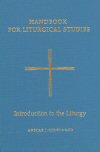
More than 40 authors from Asia, Africa, Latin America, North America, and Eastern and Western Europe have contributed to the Handbook. Many are professors and graduates of the Pontifical Liturgical Institute in Rome. Each author, while drawing material from liturgical tradition and from ancient, medieval, and modern sources, also writes from a particular research and personal interest in a subject. Although diverse in style, the authors collectively express a spirit of fidelity to the Church, its doctrine and tradition, and its mission. The result is a cohesive view of the meaning, purpose, and celebration of Christian worship.
This volume consists of 20 articles:
- A Definition of Liturgy by Anscar J. Chupungco, OSB
- Liturgical Families in the East by Ephrem Carr, OSB
- Liturgical Families in the West by Gabriel Ramis
- Bible and Liturgy by Renato De Zan
- Liturgy and the Fathers by Basil Studer, OSB
- Liturgy and Ecumenism by Patrick Lyons, OSB
- History of the Liturgy Until the Fourth Century by Anscar J. Chupungco, OSB
- History of the Eastern Liturgies by Manel Nin, OSB
- History of the Roman Liturgy Until the Fifteenth Century by Anscar J. Chupungco, OSB
- History of the Roman Liturgy from the Sixteenth until the Twentieth Centuries by Keith F. Pecklers, SJ
- History of the Liturgies in the Non-Roman West by Jordi Pinell i Pons, OSB
- Liturgical Documents of the First Four Centuries by Basil Studer, OSB
- Byzantine Liturgical Books by Elena Velkova Velkovska
- Other Liturgical Books in the East by Manel Nin, OSB
- Liturgical Books of the Roman Rite by Cassian Folsom, OSB
- Liturgical Books of the Non-Roman West by Gabriel Ramis
- Criticism and Interpretation of Liturgical Texts by Renato De Zan
- Liturgical Textual Criticism by Renato De Zan
- The Translation of Liturgical Texts by Anscar J. Chupungco, OSB
- Liturgical Law by Frederick R. McManus
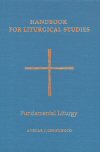
What concepts must one have in order to understand and explain the nature and purpose, plan and actualization, and relational character of the liturgy? Fundamental Liturgy addresses this question in three parts—epistemology, celebration, and human sciences—which develop the foundational concepts of the liturgy. It leads the reader to a deeper understanding of the liturgy by examining the basic concepts that belong to its definition.
Articles include:
- Theology of the Liturgy by Alceste Catella
- Liturgy and Symbolism by Crispino Valenziano
- Liturgy and Spirituality by Jésus Castellano Cervera, OCD
- Pastoral Liturgy by Domenico Sartore, CSJ
- Catechesis and Liturgy by Domenico Sartore, CSJ
- Liturgy and Ecclesiology by Nathan Mitchell
- The Liturgical Assembly by Mark Francis, CSV
- Participation in the Liturgy by Anna Kai-Yung Chan
- Liturgical Ministries by Thomas A. Krosnicki, SVD
- The Psychosociological Aspect of the Liturgy by Lucio Maria Pinkus, OSM
- Liturgy and Anthropology: The Meaning of the Question and the Method for Answering It by Crispino Valenziano
- The Language of Liturgy by Silvano Maggiani, OSM
- Liturgy and Aesthetic by Silvano Maggiani, OSM
- Liturgy and Music by Jan Michael Joncas
- Liturgy and Iconology by Crispino Valenziano
- Liturgy and Inculturation by Anscar J. Chupungco, OSB
It is highly recommended for those who teach liturgy and as a reference book in university-level libraries.
—Mark R. Francis, CSV
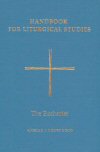
The Eucharist contributes to the reflection on the meaning and purpose of the eucharistic celebration. It also offers teachers and students of liturgy a handbook for studying this subject based on historical development; theology and doctrine; liturgical texts and traditions in both East and West; and pastoral considerations.
Articles include:
- A Eucharistic Lexicon by Marcel Metzger
- The Eucharist in the First Four Centuries by Enrico Mazza
- The Eucharistic Liturgy in the East: The Various Orders of Celebration by Stefano Parenti
- The Oriental Anaphoras by Enzo Lodi
- The History of the Eucharistic Liturgy in Rome by Marcel Metzger
- The Sacramentary of Paul VI by Michael Witczak
- The Roman Lectionary for Mass by Adrien Nocent, OSB
- The Homily by Domenico Sartore, CSJ
- Musical Elements in the Ordo Missae of Paul VI by Jan Michael Joncas
- The Eucharistic Celebration in the Non-Roman West by Gabriel Ramis
- Worship of the Eucharist Outside Mass by Nathan D. Mitchell
- The Liturgy of the Presanctified Gifts by Nicola Bux
- The Viaticum by Philippe Rouillard, OSB
- Questions about Specific Points by Adrien Nocent, OSB
- Theology of Eucharistic Celebration by David N. Power, OMI
This is an indispensable text for all who engage in serious study of the liturgy.
—Liturgy
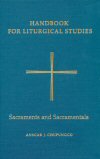
Sacraments and Sacramentals contributes a deeper understanding of the nature and purpose of sacraments and sacramentals, leading to a critical appreciation of Vatican II decrees and postconciliar reforms. Anscar J. Chupungco opens with a review of the basic liturgical notion of sacraments and sacramentals, then examines them according to their earliest known form going back to the first four centuries. After the fourth century, the treatment is divided between the East and the West. Where opportune, as in the case of confirmation, Chupungco addresses the pastoral implications of the postconciliar reform.
Articles include:
- Christian Initiation During the First Four Centuries by Adrien Nocent, OSB
- Christian Initiation in the East by Stefano Parenti
- Christian Initiation in the Roman Church from the Fifth Century Until Vatican II by Adrien Nocent, OSB
- Reconciliation in the First Four Centuries by Antonio Santantoni
- Reconciliation in the Eastern Churches by Nicola Bux
- Reconciliation in the West by Antonio Santantoni
- Anointing of the Sick During the First Four Centuries by Stefano Parenti
- Care and Anointing of the Sick in the East by Stefano Parenti
- The Anointing of the Sick in the West by Philippe Rouillard, OSB
- Orders and Ministries in the First Four Centuries by Antonio Santantoni
- Ordinations in the East by Stefano Parenti
- Ordination and Ministries in the West by Antonio Santantoni
- The Christian Rite of Marriage in the East by Stefano Parenti
- The Christian Rite of Marriage in the West by Adrien Nocent, OSB
- Monastic Profession in the East by Manel Nin, OSB
- Rite of Religious Profession in the West by Matias Augé, CMF
- The Rite of Consecration of Virgins by Nichola Emsley, OSB
- Funeral Rites in the East by Elena Velkova Velkovska
- Funeral Rites in Rome and the Non-Roman West by Vincent Owusu, SVD
- Blessings in the East by Elena Velkova Velkovska
- Blessings in Rome and the Non-Roman West by Reiner Kaczynski
This is a valuable reference tool for the scholar who needs to locate the significant text in any research area on the sacraments.
—Theological Studies
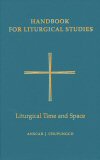
The final volume in the Handbook for Liturgical Studies series, Liturgical Time and Space opens with a preliminary notion of time and space, before discussing in detail three types of liturgical celebrations on which time and space have a direct and particular bearing. The first of these is the Liturgy of the Hours. This topic is developed in the light of the early Christian tradition until the fourth century and its subsequent forms in both East and West. The second is the Liturgical Year, traditionally called the anni circulas. The development of the Liturgical Year during the first four centuries is reviewed. This is followed by a detailed study of the Byzantine, Roman, and non-Roman Western tradition. It concludes with the theology and spirituality of the Liturgical Year wherein the mystery of Christ as a saving event is made present in time, so that the faithful may lay hold of it through the Word and the sacraments. The theology of liturgical space is drawn from the mutual interaction between the assembled community, which gives meaning to the place of assembly, and the place itself, which upholds and signifies community.
Articles include:
- The Liturgy of the Hours in the First Four Centuries by Rubén M. Leikam, OSB
- The Liturgy of the Hours in the East by Robert F. Taft, SJ
- The Liturgy of the Hours in the Roman Rite by Rubén M. Leikam, OSB
- The Liturgy of the Hours in the Non-Roman West by Rubén M. Leikam, OSB
- The Theology of the Liturgy of the Hours by Robert F. Taft, SJ
- The Liturgical Year in the First Four Centuries by Matias Augé, CMF
- The Liturgical Year in the East by Elena Velkova Velkovska
- The Liturgical Year in the Roman Rite by Matias Augé, CMF
- The Liturgical Year in the Non-Roman West by Gabriel Ramis
- The Liturgical Cult of Mary in the East and West by Ignazio M. Calabuig, OSM
- The Cult of Saints in the East and West by Philippe Rouillard, OSB
- A Theology of the Liturgical Year by Matias Augé, CMF
- The Rite of Dedication of a Church by Ignazio M. Calabuig, OSM
- Liturgical Architecture by Crispino Valenziano
- A Theology of Liturgical Space by Cettina Militello
This volume successfully completes the serious attempt of the Pontifical Liturgical Institute to present the basic themes that should form the content of an integral program for liturgical study. . . . The essays in this volume continue the same high quality of scholarship and pastoral insight that have marked the previous volumes in this series.
—Theological Studies
About the Editor
Anscar J. Chupungco, OSB, is the director of the Paul VI Institute of Liturgy in the Philippines and professor of liturgical inculturation at the Pontifical Liturgical Institute in Rome. Among his publications are Liturgies of the Future: The Process and Methods of Inculturation and Liturgical Inculturation: Sacraments, Religiosity, and Catechesis.
Interested in Liturgy? Take a look at the Paulist Press Liturgy and Sacraments Bundle (21 vols.).
Key Features
- Provides a reference for liturgical ministry
- Presents the works of more than 40 authors from around the globe
- Addresses the methodology; historical setting; theological and spiritual doctrines; and pastoral concerns of the liturgy
Product Details
- Title: Handbook for Liturgical Studies
- Editor: Anscar J. Chupungco
- Series: Handbook for Liturgical Studies
- Publisher: Liturgical Press
- Volumes: 5
- Pages: 2,096
- Christian Group: Catholic
- Resource Type: Handbooks
- Topic: Liturgical Theology
About the Editor
Anscar J. Chupungco, OSB, is the director of the Paul VI Institute of Liturgy in the Philippines and professor of liturgical inculturation at the Pontifical Liturgical Institute in Rome. Among his publications are Liturgies of the Future: The Process and Methods of Inculturation and Liturgical Inculturation: Sacraments, Religiosity, and Catechesis.